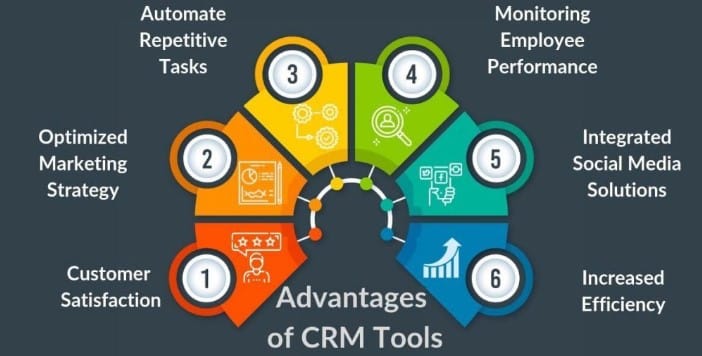The paradigm of business-customer interaction has been shifting dramatically in recent years. Thanks to technology, organizations are now leveraging cutting-edge tools to enhance customer relationships, and the crowning jewel in this arsenal is the Cloud CRM (Customer Relationship Management) Software.
The Evolution of CRM Software
CRM software isn’t something that popped up overnight. It has roots dating back to the 1980s. However, it was only until the dawn of cloud computing that CRM software began to truly revolutionize how businesses interact with their customers.
Understanding CRM
Before delving into Cloud CRM, let’s lay some groundwork by understanding the basic concept of Customer Relationship Management (CRM). Simply put, CRM involves strategies, technologies, and practices that companies use to manage and analyze customer interactions throughout the customer lifecycle. The goal? Enhancing customer service, fostering customer relationships, and driving sales growth.
What is Cloud CRM?
Now, imagine taking the functionalities of CRM and supercharging it with the power of the cloud. That’s Cloud CRM for you! It’s a comprehensive software system that hosts CRM tools and applications on the cloud, enabling businesses to access and manage customer data anytime, anywhere. Now, let’s uncover the layers and delve into the benefits, advantages, and potential drawbacks of this system.
The Initial Phase: CRM in its Infancy
In the 1980s and 1990s, the concept of CRM was rudimentary. Businesses kept paper-based records or basic databases with customer information. The process was manual, labor-intensive, and highly susceptible to human error.
CRM in the Era of Cloud Computing
With the introduction of cloud computing, CRM took a significant leap forward. Businesses now had a more efficient and error-free way of managing customer data. This was the start of the cloud-based CRM software era that we know today.
Cloud CRM Software : Benefits, Advantages and Disadvantages
Let’s dig deeper into what Cloud CRM Software brings to the table, alongside its potential downsides.
Unpacking the Benefits of Cloud CRM Software
Cloud CRM software has transformed the way businesses manage customer relationships. But what makes it so beneficial?
Accessibility and Mobility
Cloud CRM software can be accessed from anywhere, at any time. This remote accessibility means that your team can engage with customers regardless of geographical limitations.
Cost-Effectiveness
With Cloud CRM, businesses no longer need to invest in expensive hardware or servers. All data is stored in the cloud, which significantly reduces upfront costs.
The Advantages of Cloud CRM Software
Apart from benefits, there are distinct advantages that make Cloud CRM software a wise choice for businesses.
Scalability
As your business grows, so can your Cloud CRM software. You can upgrade or downgrade your package based on your needs, making it a flexible solution for businesses of all sizes.
Real-Time Updates and Insights
Cloud CRM software provides real-time data, helping businesses make informed decisions swiftly. This feature can be a game-changer in dynamic and competitive markets.
The Flip Side: Disadvantages of Cloud CRM Software
Even the best technologies come with their share of disadvantages. Let’s explore some potential pitfalls of Cloud CRM Software.
Dependence on Internet Connectivity
Cloud CRM software relies on internet connectivity. Any disruptions to your internet service could limit your access to critical customer data.
Security Concerns
While providers take every measure to secure data, the risk of data breaches cannot be entirely ruled out. This can be a significant concern for businesses dealing with sensitive customer data.
Internet Dependency
A key drawback of Cloud CRM is its reliance on the internet. Without a stable internet connection, access to customer data can be disrupted, hindering your operations.
Data Privacy Concerns
While cloud vendors offer stringent data security measures, the fact remains that your customer data is stored externally. This raises potential data privacy issues, especially for businesses operating in heavily regulated industries.
Limited Customization
While most Cloud CRM systems offer customization, they might not be as flexible as on-premise solutions. Some businesses might find these limitations restricting, especially if they have specific needs that generic Cloud CRM solutions cannot meet.
Conclusion
In a nutshell, Cloud CRM Software is a powerful tool that has reshaped customer relationship management. However, like any technology, it has its pros and cons. When deciding whether or not to implement it, businesses should weigh these aspects carefully.
FAQs
1. What is Cloud CRM Software?
Cloud CRM Software is a customer relationship management tool that runs on a cloud-based platform. It helps businesses manage customer data, track customer interactions, and streamline marketing efforts.
2. What are the main advantages of Cloud CRM Software?
The main advantages of Cloud CRM Software include scalability, cost-effectiveness, accessibility, and real-time updates and insights.
3. What are the disadvantages of Cloud CRM Software?
Potential disadvantages of Cloud CRM Software include dependence on internet connectivity and security concerns.
4. Is Cloud CRM Software suitable for small businesses?
Yes, Cloud CRM Software is suitable for businesses of all sizes due to its scalability and cost-effectiveness.
5. How does Cloud CRM Software enhance customer relationships?
Cloud CRM Software helps businesses manage customer data, track customer interactions, and personalize marketing efforts, enhancing customer relationships.
6. Are there alternatives to Cloud CRM Software?
Yes, alternatives include on-premises CRM solutions, but these may not offer the same level of accessibility, scalability, and cost-effectiveness as Cloud CRM Software.
Read More :
